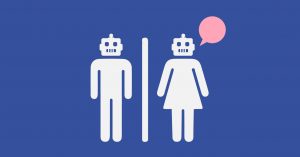One clammy August night in 2011, newly relocated to New York City, I watched Music Twitter collectively lose its shit. Jay-Z and Kanye West had just released Watch the Throne, their buzzy, long-prayed-for joint album about wealth, class, and #BlackExcellence. The timing was, in retrospect, paradoxical: August 8 was also Black Monday. Global stock markets were in a thrashing downturn. The chill of the Recession iced our backs—still. The strangeness and uncertainty of the moment was matched only by the strangeness and uncertainty of what unfolded on my laptop screen. Like a meteor rocketing toward Earth, Music Twitter had converged for its first real moment of the decade—a presaging of future times and trends.
Eleven months later, feasting on the fat of summer in an apartment on Mulberry Street, friends and I salivated over the gravity of a TextEdit screenshot Frank Ocean had, only minutes ago, uploaded to his Tumblr page. It detailed a lingering and intense relationship with another man, his first love. We told each other a window was opening. By the end of the 2010s, a 19-year-old born Montero Hill would find viral fame in the unlikeliest of internet apertures: on the short-form video app TikTok, ultimately catapulting into untold stardom—and with it his song became the longest-leading Billboard Hot 100 No. 1 in history. Hill was no more and the young legend of a black gay cowboy known as Lil Nas X was cemented—the tempos of our digital biodome were fully etched in stone.
At the dawn of the decade, even though we couldn’t fully grasp it then, a new language was being written online for both music artists and fans. Twitter, Tumblr, Instagram—they were tangible proof that eccentric, one-purpose technologies could not only endure but revolutionize how we understand, consume, and make music. Engagement was mandatory. Now, in its dimming tints, which arrived at warp speed, the here and now is defined doubly: by obsessives and obsessive technologies.
Let us look to our foremost cultural engines, many of which are still with us, some of which have withered into the digital graveyard, as the true barometer of music engagement. Social media platforms have altogether rewritten how we metabolize music and the culture that surrounds it. They’ve radicalized the rules of fandom. They’ve upturned traditional industry releases and made extinct the idea of gatekeepers. Best of all, they’ve given us goggles for a future that obeys only the pulse of change.
Big data tells one story. That music streaming platforms—Soundcloud, Spotify, Apple Music, Tidal—are the most transformative music tools of the decade. Guess what? Big data is wrong. This decade, music streaming platforms merely archived culture; they didn’t shape it in the way that we like to believe. Aside from Soundcloud—that lovable, volatile breeding ground of genre fermentation—Silicon Valley-backed music giants were important in mostly two ways: They substantiated the Playlist Era (which Soundcloud had already been experimenting with in much more exciting fashion, though on a much smaller scale), and as a result they created a culture dependent on singles. The logic skewed to our frenzied times. We consumed in hyperdrive, which meant there was no time to labor over hour-long albums. The cult of the single fed into another phenomenon that has defined the decade: virality. Singles—Cardi B’s “Bodak Yellow”; Carley Rae Jepsen’s “Call Me Maybe”—became the conduit; an optimal pathway to capture the moment and all it had to offer.
Music streamers are like museums: They house culture, they don’t create it. Soundcloud was the lone exception. Even though it predates the Big Three, it has had the most enduring impact, culturally. Launched in 2008, SoundCloud came of age this decade and developed a business model on community-oriented music streaming—for musicians, podcasters, DJs, mixed-media artists—that reflected that plurality in every regard, transforming into a network whose boundaries were delightfully porous. It gave us Soundcloud rap, one of the most disruptive and compelling genres of the 2010s, and elevated cultural forces like Chance the Rapper, Lorde, and Lil Uzi Vert to pop royalty.
But most of what flowered on music streaming services was a manifestation of culture being hatched elsewhere on the internet, in less obvious portals. Technological shifts on social media helped rewrite the rules for popstars and pop fandom, removing walls and saturating the culture from the inside out. At its most potent levels, social media allowed for something new: the complete bypassing of industry rules, supplying a direct link to the source.
What we talk about when we talk about how the 2010s changed the way we engage with music: It’s Music Twitter banding together that fateful August night to argue over Watch the Throne. It’s Frank Ocean’s coming out letter on Tumblr. It’s Beyonce’s first surprise album drop in 2013 totally updating the artist rulebook and the discourse that flooded social media feeds for months. It’s the sound of protest pop being reshaped by #BlackLivesMatter. It’s the teen auteurs of Vine giving us a new appreciation for classic hits and pop curios. It’s the freaky omnipresence of Drake’s “Hotline Bling” meme. It’s Radiohead’s mysterious video announcement on Instagram, marking their first new album in five years. It’s the hypnotic, coiling trance of TikTokers using the app to recalibrate not just music but culture as we know it. It was, in short, a decade of repurposing—technologically, musically, culturally.
The machines were central to our evolution, but they weren’t the whole story. Through every twist and across every robot junkpile of the decade, music was most shaped by the force of the individual artist more than any one single, album, platform, technology, or cultural product. If there is one connecting thread among all these technologies, trends, and phenomena, it is the drive to nothingness. The 2010s were the age of impermanence. Think about it. Music actually vanished—we lost vinyl and CDs to the rise of streaming and digital consumption. You don’t really own albums anymore; you lease them from Spotify or Tidal, and when those platforms decide to erase an artist’s catalog—poof, it’s gone. We now prefer singles to full projects, precious stones for our assorted playlists. We live and tweet and hot take so quickly we don’t ever truly sit with a song. We forget quicker than we metabolize new information. We’re winnowing down. And happily so. Or is it that we’re withering away into some utopic, objectless matrix, plugged in with the volume at maximum levels? Whatever future we are barreling toward in the coming decade, promise me one thing: Be careful not to blink. You might just miss it.
The Best Artists of the Decade:
Beyonce
BTS
Drake
Frank Ocean
Kanye West
Kendrick Lamar
Robyn
Pharrell
Rihanna
Taylor Swift
The Best Music Technologies of the Decade:
Soundcloud
Spotify
Vine
YouTube
More Great WIRED Stories
- Instagram, my daughter, and me
- Tweak these Google Chrome settings to level up your browsing
- Welcome to Rachel, Nevada—the town closest to Area 51
- The Irishman gets de-aging right—no tracking dots necessary
- Ewoks are the most tactically advanced fighting force in Star Wars
- 👁 Will AI as a field “hit the wall” soon? Plus, the latest news on artificial intelligence
- 🎧 Things not sounding right? Check out our favorite wireless headphones, soundbars, and Bluetooth speakers



